By: Dr. Ahmed Abdul Malik
Nigeria has the largest Muslim population in West Africa. The CIA estimates over 50% of the population is Muslim while the BBC estimated in 2007 that slightly over 50% of the population is Muslim. Muslims in Nigeria are predominantly Sunnis of the Maliki school of thought.
Islam was introduced to Nigeria through two geographical routes: North Africa and the Senegalese Basin. The origins of Islam in the country is linked with the development of Islam in the wider West Africa. Trade was the major connecting link that brought Islam into Nigeria.
Islam was first documented in Central Sudan by medieval Islamic historians and geographers such as Al-Bakri, Yaqut al-Hamawi,Al-Maqrizi and later works of Ibn Battuta and Ibn Khaldun offered more notes about Islam in West Africa.
Also Read: Sheikh Muhammad Amin al-Husseini: The Palestinian Mufti in Indonesia’s Independence History
Why did Islam spread quickly?
Muslim conquests following Prophet Muhammad death led to the creation of the caliphates, occupying a vast geographical area, conversion to Islam was boosted by missionary activities, particularly those of imams, who intermingled with local populations to propagate the religious teachings.
Who brought Islam to Africa?
According to Arab oral tradition, Islam first came to Africa with Muslim refugees fleeing persecution in the Arab peninsula. This was followed by a military invasion, some seven years after the death of the prophet Muhammad in 639, under the command of the Muslim Arab General, Amr ibn al-Asi.
How did Islam spread in Nigeria?
Historical records show that Arab scholars and traders played a great role in the propagation of Islamic faith and education in Africa and Nigeria. Great cities like Cairo, Timbuktu,Djenne, Gao and the regions of the Western Sudan flourished as centres of commerce and religious learning. Many notable judges, doctors, clerics and historians were produced in these centres, which impacted significantly on the lives of the people. The civilization that came to Africa, especially the North Africa and the Western Sudan, owe much to the activities of the Arab traders and scholars who visited the land hundreds of years before the coming of the Europeans.
When did Islam spread to Nigeria?
Islam was introduced to northern Nigeria as early as the 11th century and was well established in the major capitals of the region by the 16th century, spreading into the countryside and toward the Middle Belt uplands.
Also Read: Celebrating 200th Java War: Novelty Spirit of 2013 Memory of The World
Where did Islam started in Nigeria?
The spread of Islam in Nigeria dates back to the eleventh century when it first appeared in Borno in the northeast of the country. Later Islam emerged in Hausaland in the northwest and its influence was evident in Kano and Katsina.
What is the relation between Male in South East Asia as ethnic and Calling Islam Religion of Male or Esin Imale in Southern Nigeria(Yoruba Land)?
In fact, it sound same, but actually there is no connection between Male in South Easth Asia and Calling Islam Religion of Male in Yoruba land.
Islam in Ancient Yoruba is referred to as Esin Imale (religion of the malians) as the earliest introduction of the religion to that region was through Malian itinerant traders (Wangara Traders) around the 14th century.
Also Read: History, Islam, and the Culture of the Kazakhstan: Abai as a National Inspiration
There are many old and historical Mosque in Northern Nigeria.
Progressively, Islam came to Yoruba land, and Muslims started building Mosques: Iwo town led, its first Mosque built in 1655 followed by Iṣẹyin, in 1760 Lagos, 1774 Ṣaki, 1790 and Oṣogbo 1889.
How many religions in Nigeria and what is the main religion?
The dominant religions in Nigeria are Islam and Christianity, imported to West Africa generations ago. But traditional African religion has not been forgotten. It can be found in some places in Nigeria. So Nigeria is a multi-ethnic and multi-religious state. The two major religions in the country are Islam and Christianity.
How is Islam in Southeast Nigeria?
Southeast Nigeria is also known as Igboland, Amid assumptions of a hegemonic Igbo Christian identity, conversions to Islam began in the late 1930s in the Igbo territory of south-east Nigeria
Igboland, which is geographically located in the Southeastern part of Nigeria, was the last part of the country to witness the advent of Islam. This was owing to the fact that the people there are predominantly Christian and adherents of African traditional religions. Notwithstanding, Islam spread to the region in the nineteenth century and has since been earning itself new adherents among the local people.
What is the traditional system of Islamic education in Nigeria?
The education that preceded the Islamic education system in Nigeria was the traditional system. The traditional system of education has been proven to be a potent and functional means through which societal lores and norms are transmitted from generation to generation. The system allows for the inculcation of positive values, skills and attitudes that prepare individuals to become useful members of their respective communities. The system is still found to be relevant in offering solutions to the multi-faceted problems of the present day complex Nigeria.
The advent of Islam and Islamic type of education in Nigeria did not altogether condemn the hitherto existing education of the people. Rather, it has sought to consolidate those aspects of the beliefs and practices of the people that emphasized such virtues as valour, tolerance, respect for others, dignity of labour and unity of purpose. (A/Hju/RE1)
Also Read: Boycotting Israeli-Affiliated Products: A Moral Stance and a Form of Supporting Justice
Mi’raj News Agency (MINA)





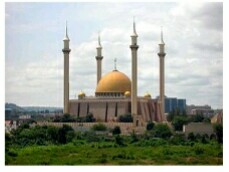





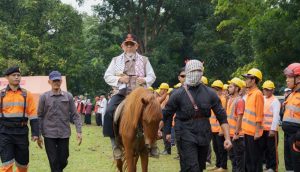

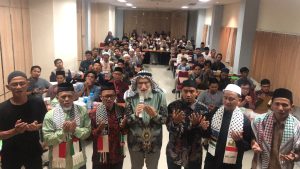



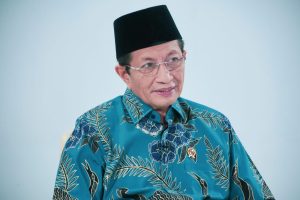

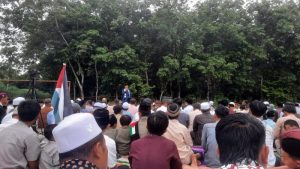













 Mina Indonesia
Mina Indonesia Mina Arabic
Mina Arabic